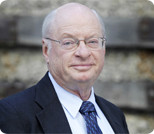Managed money ≠ sound money
When asked (especially during Congressional oversight hearings) a central banker will resolutely declare a belief in “price stability.” Then, with a straight face, express concerns that the rate of increase of consumer prices is below target! The belief that the average of the prices of things households purchase on a regular basis should always increase is not price stability. Nor are persistent declines in the inflation-adjusted real wages of workers–which is one of the objectives of policymakers who pursue secular rising prices.
If the central banker is asked whether common stock prices should be stable, he will emphatically declare “certainly not.” He may even, at times, sound like a politician who favors “higher prices for farmers and lower prices for consumers.” In fact, most people will favor higher prices for things they sell (especially their labor) and lower prices for things they buy. So, while a belief in “price stability” is commonly declared, no one wants specific prices to be “stable.” If the voting public really wanted prices to be constant, they would support politicians who favored government-administered price controls–and that has never worked anywhere that it has been tried.
A belief in sound money is not the same as a belief in “price stability.” Sound money (like under the classical gold standard) is when people make decisions in the firm belief that all observed changes in prices–of assets as well as goods and services–are changes in relative prices, and that all observed changes in interest rates are changes in real interest rates. That does not, and cannot, happen when money is “managed” in a fiat money world. Central bankers (and their political overseers) are so fearful of the dreaded “deflation” that there is an institutional bias in favor of at least a mild positive rate of inflation.
But there are other reasons why managed money cannot be sound money. Milton Friedman once wrote that probably the best we could do is maintain a constant monetary base–the central bank’s balance sheet. When asked, “but what should be done when the Berlin Wall falls and there is an enormous increase in foreign demand for US dollars?” Professor Friedman replied that the monetary authorities should of course accommodate that increased foreign demand; otherwise, under a fractional reserve banking system there would be a multiple contraction of the domestic money supply. When asked the follow up question, “but what should be done when foreigners regain confidence in their own national currency and the unwanted dollars are shipped back to the US?” The professor was consistent in his reply–of course the monetary authorities should contract their balance sheet to avoid an inflationary acceleration of the domestic money supply.
The many problems with this prescription include lags and concerns about accuracy of the data the policymakers rely on in diagnosing the situation, and the arrival at a collective judgment of a committee that some “fine tuning” of the central bank balance sheet is desirable. Whatever the wisdom of the committee, they are certain to be second-guessed by lots of observers, including elected representatives of the people.
Another “rule” for managing a fiat currency is similarly prone to errors in judgment. If the monetary authorities are targeting an interest rate instead of their balance sheet or some measure on the nation’s money supply, they cannot avoid reaction to “events” in the financial markets–both foreign and domestic. Some critics of the US central bank have asserted that policymakers were mistaken in their judgment that overnight interest rates should be quickly reduced at the time of the stock market crash of October 1987, the failure of Long-term Capital Management in 1998, the terrorist attack in September 2001, and the collapse of Lehman Brothers in September of 2008. Such criticism reveals a lack of understanding of the interaction of central bank operating procedures and developments in financial markets.
Any big, news-making event–from the Suez crisis in the 1950s, the Bay of Pigs fiasco and Cuba missile crisis in the early 1960s, through the several wars in the middle east in the 1970s and everything since–it is only natural that managers of financial assets will react to a crisis in a predictable way: “shorten maturities and get liquid until the smoke clears.” That is, financial market participants shift their preference in favor of shorter-term and more liquid assets–like US Treasury bills–and away from longer-term and less liquid bonds and real assets. If the central bank operating procedures specify an unchanged overnight interest rate while actions of private decision makers would result in sharply lower short-term interest rates, the central bank balance sheet–and the nation’s money supply–would need to contract. That would be an inadvertent, unintended and unwise “tightening” of monetary conditions in a crisis atmosphere. In fact, critics of the central bank have argued that such a mistake was made following the stock market crash of October 1929.
The essential point is that where there is judgment of ordinary humans–even when aided by computers–in the management of a nation’s money, mistakes will be made. Sometimes, those mistakes are cyclical–causing booms and busts. Sometimes, those mistakes are secular–causing a Great Depression or a Great Inflation. Money that is managed by central banks cannot be counted on to remain sound.










